By Anastasia Blosser, Dexter LeRuez and Gabriela Silva Ponte
The Dais held a democracy forum with New Democratic Party (NDP) federal leader Jagmeet Singh in the Sheldon & Tracy Levy Student Learning Centre (SLC) at Toronto Metropolitan University (TMU) on Friday.
Singh spoke to The Dais’ democracy forum founder and the event’s moderator, Martin Regg Cohn, about grocery prices, Canada’s dental plan, PharmaCare and making connections with the general public through social media.
He also discussed the rise of Islamophobia and antisemitism but was called out for failing to mention anti-Palestinian racism and hate.
Towards the end of the event, some attendees asked Singh to acknowledge the NDP’s reaction to the war in the Middle East rather than only speaking on topics revolving around Canada.
“You guys sat here in the beginning and spoke about the genocide happening in Palestine. You mentioned antisemitism and Islamophobia, which have both been on the rise in Canada, yes. You didn’t mention anti-Palestinian racism,” one attendee said.
“Not all Palestinians are Muslim,” they continued. “Your language erases us as a country and as a people. Palestinians are people, this is not an issue of Islam and your language erases us. You know who else erases us? Your own leaders.”
Regg Cohn interrupted the audience member asking them to state their question.
“You have the right to ask a question. Your context is over. Ask the question,” he said.
In response, the attendee said, “Do not condescend me sir. I am not done speaking. [Outgoing NDP B.C. minister Selina Robinson] said Gaza is a ‘crappy piece of land with no one on it. ‘You know who’s on it? Twenty-nine family members of mine. So what are your thoughts on that? Can you tell me what you have to say about Robinson’s disgusting comments about my people and my land?”
Singh acknowledged that Robinson’s comment was “horribly wrong” and factually incorrect.
“It was harmful. There’s no question about it,” he said. “In terms of the Palestinian racism, you’re absolutely right. I have often said that, but today, in my response I did not… It’s not just Islamophobia and antisemitism. But there’s very clearly, specifically, what should be deemed as anti-Palestinian racism that exists as well.”
Singh said it is important for everyone to be careful with the language they use.
“Leaders have a responsibility,” he said. “We can either inflame some of the pain that’s out there or we can do our part to see the pain, acknowledge it and to give people a voice. I think it’s very important that our words do that.”
Soon after, other attendees began to speak up about what they believe to be a lack of action surrounding the war in the Middle East on the NDP’s part.
Some attendees brought posters and signs.
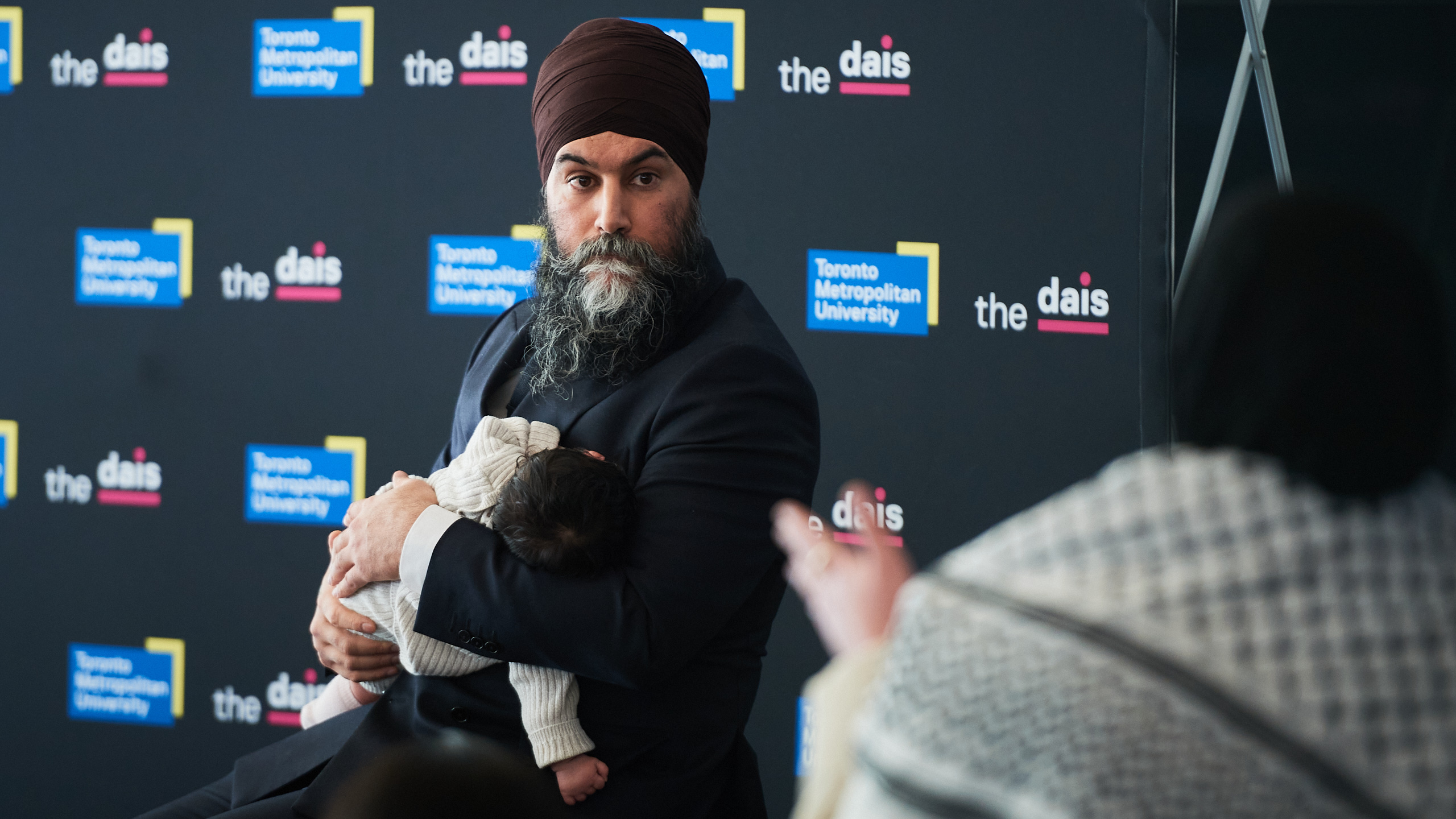
“I feel like you might want to express yourself more than you want me to respond, which is fine too. But if you do want me to respond, I’m happy to do so,” Singh said.
The initial attendee then asked the NDP leader to respond to the comments.
In response, Regg Cohn asked to move on and “share the microphones with other people.”
The attendee continued. “Nothing is as important as the genocide against the Palestinians,” they said, going on to shame The Dais for bringing Stephen Lecce to the university’s campus, as previously reported by The Eyeopener.
Singh then responded. “Months ago, we actually called for [a ceasefire]. We were the first [federal party] to call for it,” he said.
Singh said the NDP also wrote letters to Prime Minister Justin Trudeau and that he personally met with him.
Canada abstained from voting on the United Nation’s A/RES/ES–10/21 General Assembly Resolution in October of last year, which called for a humanitarian truce. Singh said his government continued to apply pressure until Canada did vote in favour of a ceasefire in the region in December.
“I don’t want to take all the credit for it because I think many people were part of this,” Singh said. “But it’s clear that we led the way at the federal level amongst political parties and our panelists in the position. So our advocacy, that’s what we do.”
Chants—such as, “While you talk, bombs are dropping,” “Advocacy does not stop genocide” and “Shame on NDP”—erupted.
Shortly after that, the group protesting was escorted out of the room by unidentified security personnel.
A different protest against the federal government took place outside the SLC, with signs and banners stating, “Leave our kids alone,” “Media is the virus” and “Trudeau’s corrupt [government] must go!!!”
At the beginning of the forum, Regg Cohn said everyone present had agreed to the code of conduct on campus and therefore no speeches or shouted slogans would be tolerated.
Under Freedom of Expression, TMU’s code of conduct protects the student body’s right to participate in “peaceful and lawful assemblies and demonstrations.”
According to the university’s statement on freedom of speech, “[TMU] does not avoid controversies, difficult ideas, or disagreements over deeply held views. When such disagreements arise within the university or a broader social context, the university’s primary responsibility is to protect free speech within a culture of mutual respect.”
Here’s what else you missed at The Dais’ democracy forum with Jagmeet Singh:
Questions and answers have been edited for length and clarity.
Regg Cohn: Almost every public event today is targeted for protests and disruptions. It happened before the increased tensions in the Middle East since last October. You’ve now got bodyguards and a personal security detail that follows you but you’ve always actually been a lightning rod for as long as I’ve known you. How do you deal with that? What do you say to people who don’t want to let you talk?
Singh: It’s not something I would necessarily say everyone should do but I am genuinely someone who’s trained in martial arts. I used to deal with physical competitions. I’m very used to being aggressively attacked so what I try to do is hear someone out, if I can. I don’t want to just tell someone else to try and deescalate, but if the energy is disruptive to everyone in the room, I don’t think it’s fair for one person to monopolize the time of all the other people. I try to make it clear that it’s not really fair that you can just be the loudest and then take away the opportunity for other folks.
Regg Cohn: Right now—on the Gaza-Israel front—the NDP has demanded a ceasefire for a long time. Why do you think it was so hard? It does seem as if we’re now very close to a ceasefire because it’s turning on the question of releasing hostages. So was that issue neglected and not stressed enough? Why did it take so long?
Singh: Before I get into it, I’m going to approach it with some humility. I don’t have all the answers and I don’t suggest that I am, in any way, an expert. I’ve been trying to lead with passion and humanity as my guiding principle. The reason why we called for a ceasefire very early on was that we saw the sheer toll of the violence that led to more and more lives being lost and the harm of that. The pain compelled us to say, “We have to do something to stop the violence.” We can’t get into a scenario where we’re valuing lives in different ways or ignoring the pain that people are feeling. So we call for a ceasefire and at the same time, we also have to make sure that the hostages are released. We maintain that position.
Regg Cohn: The NDP holds the balance of power in the minority parliament. You’re keeping the [Liberal Party] in power, you aren’t triggering an election while advancing some progressive policies. However, people tend to tag you down to Justin Trudeau and his falling popularity. Why is it so hard for a left-wing party to do the right thing and why are your supporters so suspicious of you?
Singh: In 2019, we had a minority government too. It was during the pandemic so we got a lot of stuff done. When we got re-elected in 2021 to another minority government, my team said, “Hey, we did some things during the pandemic that really helped us, now we have the opportunity to do the same thing.” You can try to negotiate a number of things, some things that might take more than a year. To do that, it is going to take more civility and it is also going to take an agreement. The conservatives are going to make a big deal of this, they are going to be really angry, they are going to say, “Why are you working with the Liberals?” Frankly, some of the Democrats might be angry at us. But we can get some big things done. You’re telling me I can get dental care for millions of Canadians, that seniors and grandparents and kids can go to the dentist and can get good dental care and the con is that people might be angry? Yeah, I’ll take the dental care. There was no question.
Regg Cohn: Let’s talk about what comes next, which is PharmaCare because that’s on the table right now. It was left out in the 1960s when the NDP pushed for it. All these years later, you’re fighting for it. The Liberals are on the hook for this but they missed the deadline last year. You gave them until March 1, which is four weeks, minus a day or two, from now. So what’s the deal here? Are they going to make it? Tell us about all the secret negotiations; what’s going to happen?
Singh: Our sticking point has been from the beginning that we want a program that works with people—everyday people. The Liberals are nervous about appeasing Big Pharma and insurance companies and we’ve said we don’t care about Big Pharma and big insurance companies. They’re not going to like this, so what? Why it’s been so difficult is that we have it in writing that they should implement PharmaCare. They are trying to find ways to get out of it. They are trying to say, “Oh, we didn’t say that.” Even in the Liberals’ own commission report, it said it clearly should be universal and single-payer. It is pretty obvious that this is the best way to do this. So, what we said is, “Because you missed your deadline, now we expect more.” I’ll give you a little juicy tidbit—you’re hearing this here first probably. Our agreement simply said there should be progress towards PharmaCare, meaning legislation that moves us towards that direction but didn’t actually require them to cover it. We’re going to require them to cover some medication, so that’ll be a part of the deal that we’re going to fight to ensure some medication will be delivered to all Canadians, which was never actually in the agreement initially. We’re going to go beyond what was in there to make up for it.
Regg Cohn: What do you do if they don’t budge?
Singh: There are things we can work out in life and negotiate. But I said it very clearly: this is not one of those things.
Regg Cohn: Only 18 per cent of Canadians think PharmaCare is the most important healthcare priority. Twice as many think mental health or long-term care is more important. How do you mobilize people? How do you motivate them to support you on this project?
Singh: If you’ve got a healthcare system, that covers you going to the doctor but it doesn’t cover the medication needed to be healthy. We’ve got people that literally say, given the cost of food and the cost of everything going up, “Do I buy groceries or do I buy medication this week?” Those stories are the most compelling. If a person doesn’t get the medication they need, what happens at end-stage diabetes? Well, you end up having kidney failure and then you go on dialysis and then you go to the emergency room. Then there’s a massive use of our healthcare resources. I can make the argument that if we can cover people’s medication, we can significantly reduce the burden on our healthcare system and make life better for everyone.
Regg Cohn: The next election is slated for late 2025. Last democracy forum you were very clear that if there was a minority government after the 2021 election, you would not support the conservatives led by Erin O’Toole. So, if there is a minority government in the next election and the conservatives have the most seats, would you support a Pierre Poilievre-led Conservative Party?
Singh: In retrospect, Erin O’Toole seems like a very reasonable person. He believed in science. He thought that a healthcare professional would give us good advice. I was hard on him, I should probably call him up and say, “Hey, you were reasonable in a lot of ways.”
Regg Cohn: So are you going to be soft on Pierre Poilievre?
Singh: No. What is the number one thing that we’re concerned about when we talk about cost of living? Groceries. People were asking us, “What is the number one reason why your groceries are so expensive?” Canadians said—on their own—corporate greed. We’re like, “Yeah, that’s why we’re going after Galen Weston. That’s what we’ve been saying.” The only way to bring down our prices is to go after these rich corporations, these rich CEOs. Pierre Poilievre’s actual campaign manager of the Conservative Party is a registered lobbyist for Galen Weston, the Loblaws Corporation. So no, he’s never going to take on corporate greed. He will never take on the real causes. His solution for housing is to sell off all the land to rich developers. No, a huge no. I would never work with someone who is so against working people, so supportive of corporate greed, who is so against common sense.
Regg Cohn: This week, the foreign interference inquiry started out so I wanted to ask you about defending democracy against interference from China but also from India. You took an oath of secrecy, you have high security clearance and so you saw the intelligence files and you agreed that there was credible evidence that Indian government agents killed the president of a Sikh temple in B.C. Given what you know now, how does Canada stand its ground with India? And what do you see ahead for the world’s biggest democracy in what is an election year?
Singh: I was really clear about Netanyahu and calling Israel out as Netanyahu’s government because there are thousands and thousands of Israelis who protest and it’s unfair to link them together. Similarly, in India there are many amazing people. But the Modi government is also a very extremist, fascist government and so it is very difficult to have relations with a country that is run by a very right-wing government. They’ve also opened a case now before the courts in America with the indictment that the Indian nation actually contacted an undercover officer in the United States to assassinate another American citizen on American soil. So you’ve got two examples where the Modi government is affiliated with extrajudicial killing and attempts to kill Canadians and Americans in India.
Regg Cohn: I think it was almost a decade ago, I remember you were invited to a conference on human rights or something about Kashmir women in India and you were denied a visa. Have you tried since then and what was the reason for that?
Singh: I have not tried since 2013. At the time, I was very critical of the Indian government, enough to keep up with the government’s track record on its treatment of minority communities, women’s rights, low income and what’s known as low caste. I was told when I met with the consulate, actually, that if I was willing to rescind my comments I would be getting a visa. I said I’m not going to do that, obviously. Since then, I have not stopped being critical of any government that engages in numerous human rights violations. I think that’s an important part of a democracy; for us to be critical of those that engage in human rights violations, critical of media and history when it comes to the treatment of Indigenous people, ongoing and historic. So I think it’s very important that we’re critical and the goal of that criticism should be to get to a better place where we do have true democracy.
Regg Cohn: I didn’t know this about you, but you stopped using your original surname because it has a past linkage. Tell me about that?
Singh: In the Sikh tradition, there is a system of oppression which is basically a combination of racism and classism. It’s based on your birth and what family you are from that denotes your hierarchy in society. It’s often affiliated. Darker-skinned folks are often lower caste. One of the Sikh philosophies is to destroy that system of inequality. It’s also why I believe Sikhs are committed to justice for inequality in general. But in Canada, people started using their last names again. So I thought about it a lot and politically, I decided not to run on this last name and said essentially this idea that we believe everyone’s equal, there should be no hierarchy like that.
Attendee: You’ve talked a lot about the cost of living crisis in this country and how Canadians are struggling and I am sure many students in this room are also struggling. Food banks, for example, are struggling to keep up with record demand. So, with that in mind, you talk about the cost of living crisis, but your agreement keeps the government responsible for it in power. So I’m just curious when you see long food bank lines, do you feel responsible for it?
Singh: People are struggling; people are hurting right now. I think what is most effective if people are struggling with food is to find a way to make food more affordable. The major reason why prices are high is because of corporate greed. Corporations are making record profits, while people are as hungry as ever before. And so what I’m trying to do is to take on that corporate greed. What are my options? Cause an election and then cost a billion dollars, maybe 30 or 40 days in the election? How is that helping someone who’s struggling to buy groceries? Versus right now, what we’re putting in place is legislation that’s going to take on the corporate greed of Galen Weston directly, take away their power and give power back to people. I have a law in Parliament right now. And I’m fighting to make that the law. Then I look at the alternatives right now. The alternatives are me, there’s Justin Trudeau—who’s clearly ignoring the problem— and Pierre Poilievre—whose campaign manager is a registered lobbyist for Loblaws, the company that is literally ripping off Canadians. They just cancelled that 50 per cent off who they’re gonna throw away because they want to make more money off of you. Pierre Poilievre’s campaign manager is a registered lobbyist for this company, so will he ever take on corporate greed? No, he works for them. His campaign manager is a registered lobbyist for them. How do I help people who tell me that they’re hungry? I’m going to use my power to give people a break. I’m going to use my power to take away power from rich corporations. And that’s what we’re doing right now with that Bill in Parliament.



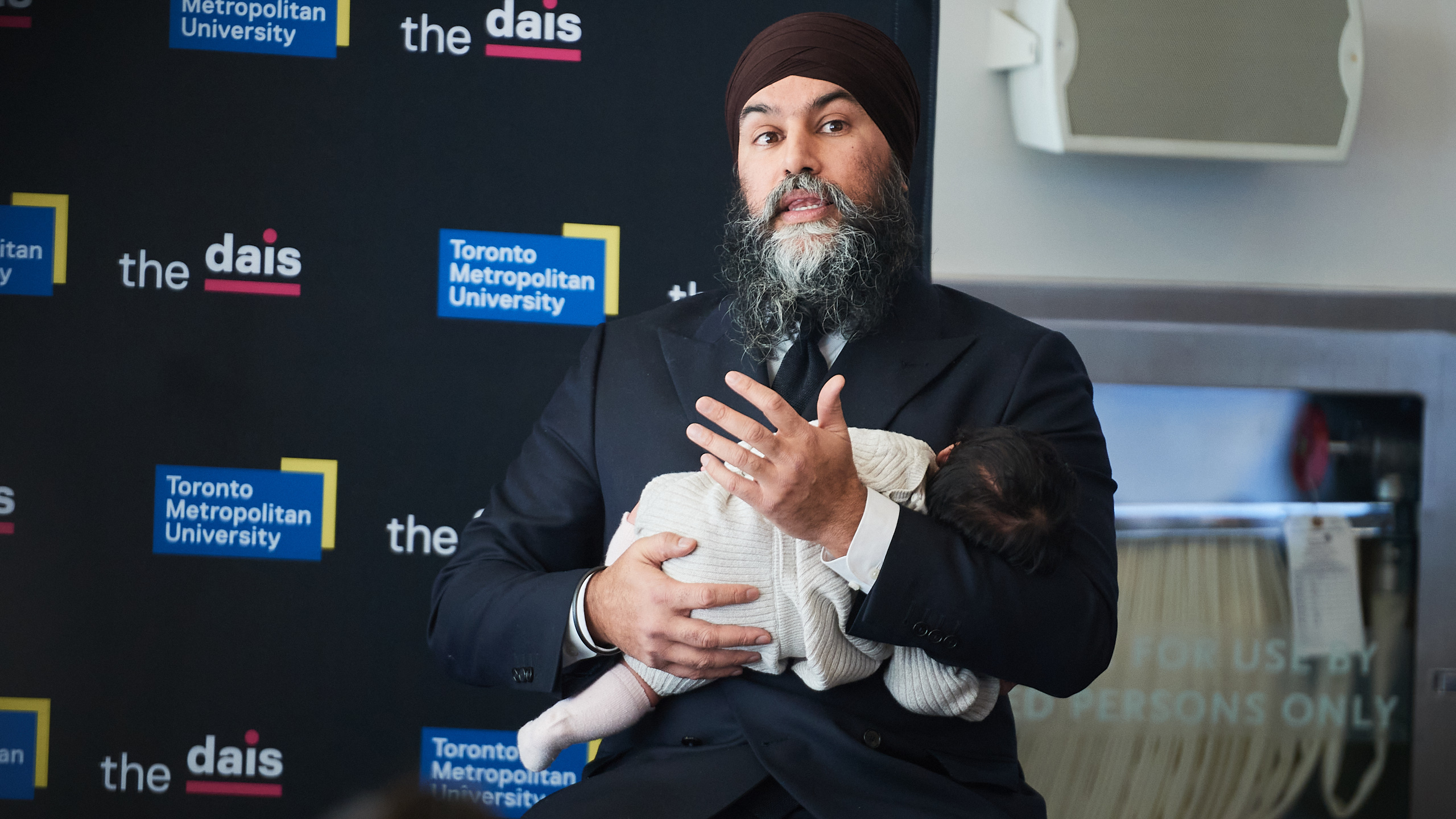
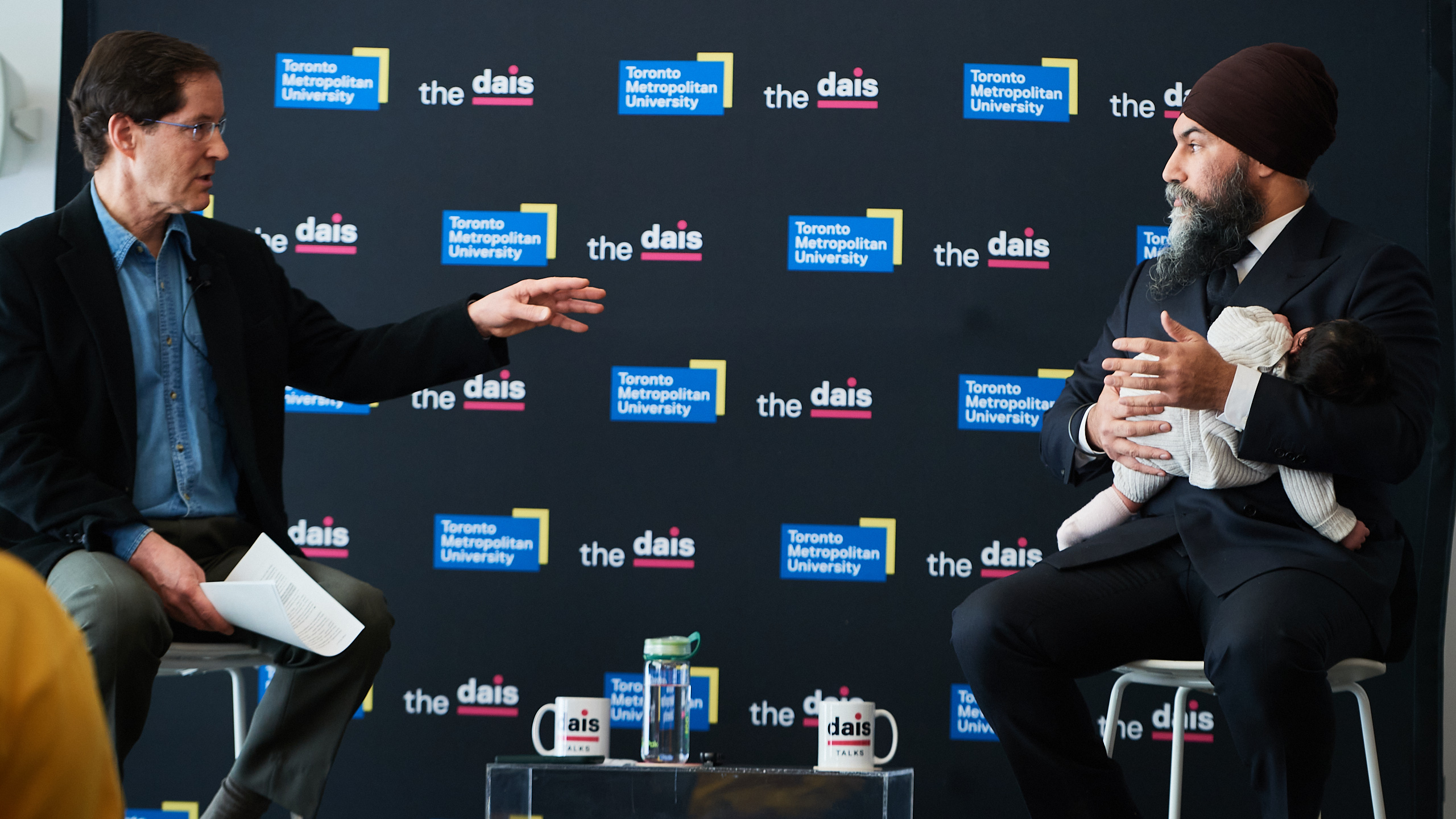
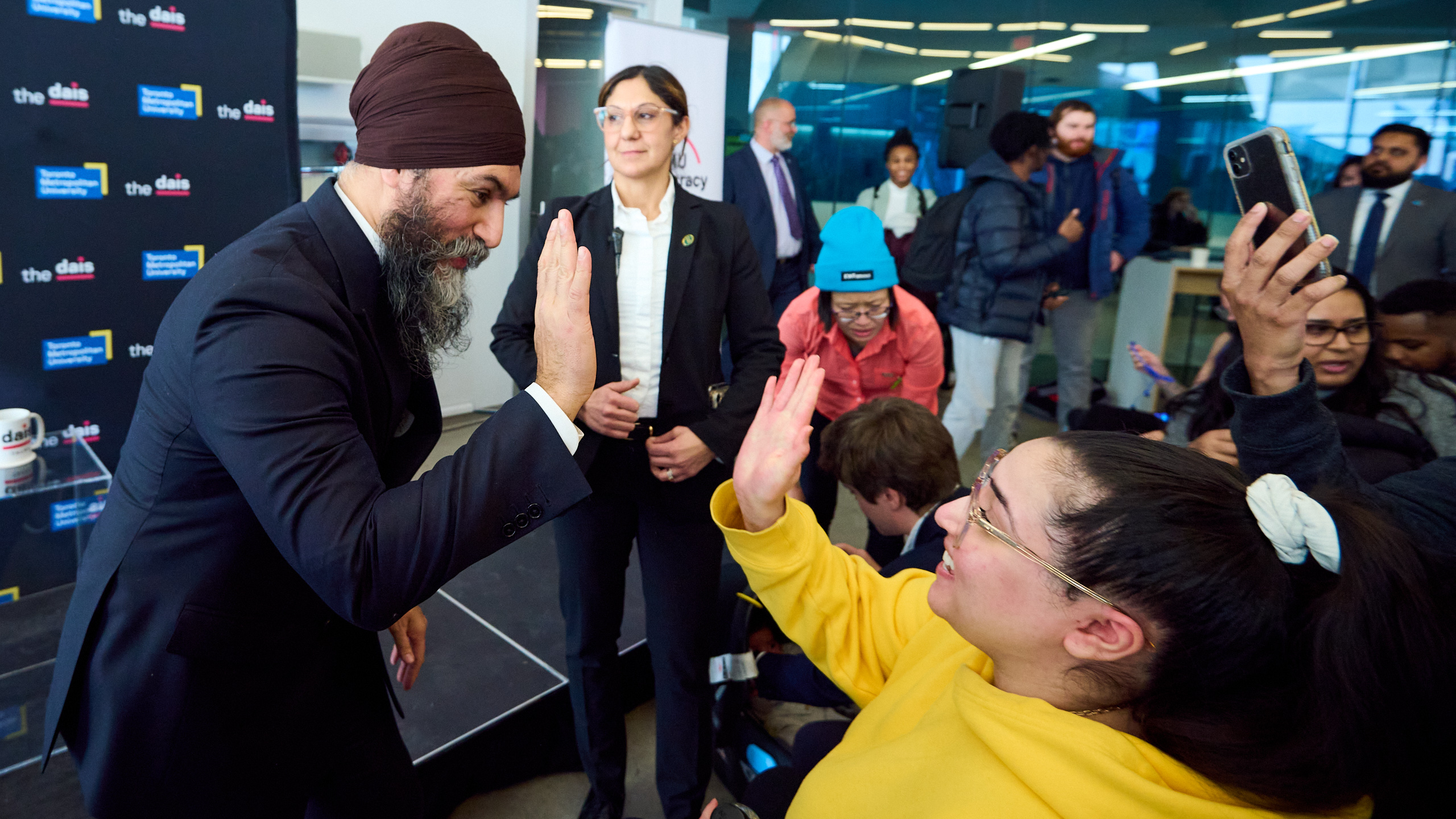
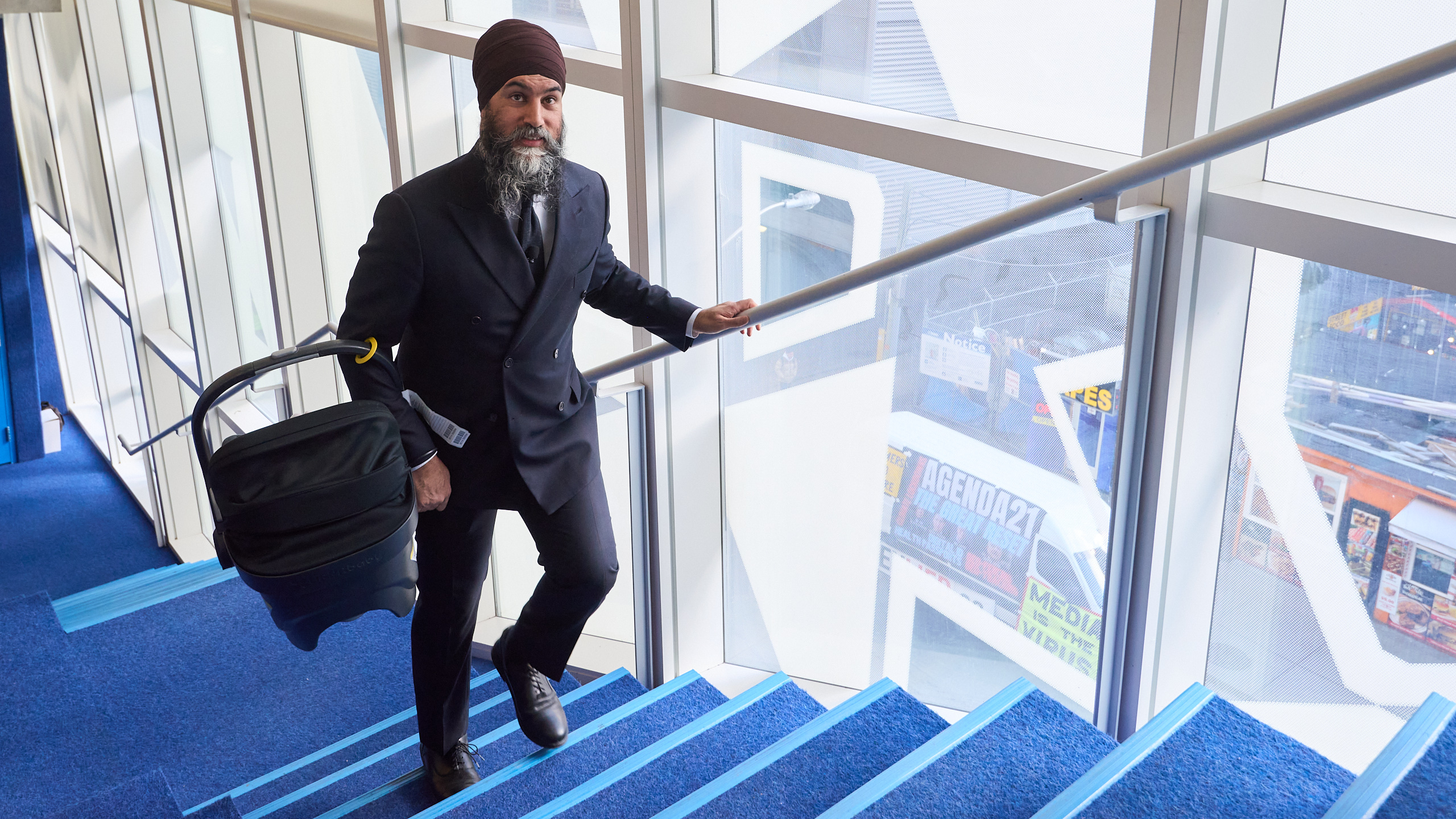
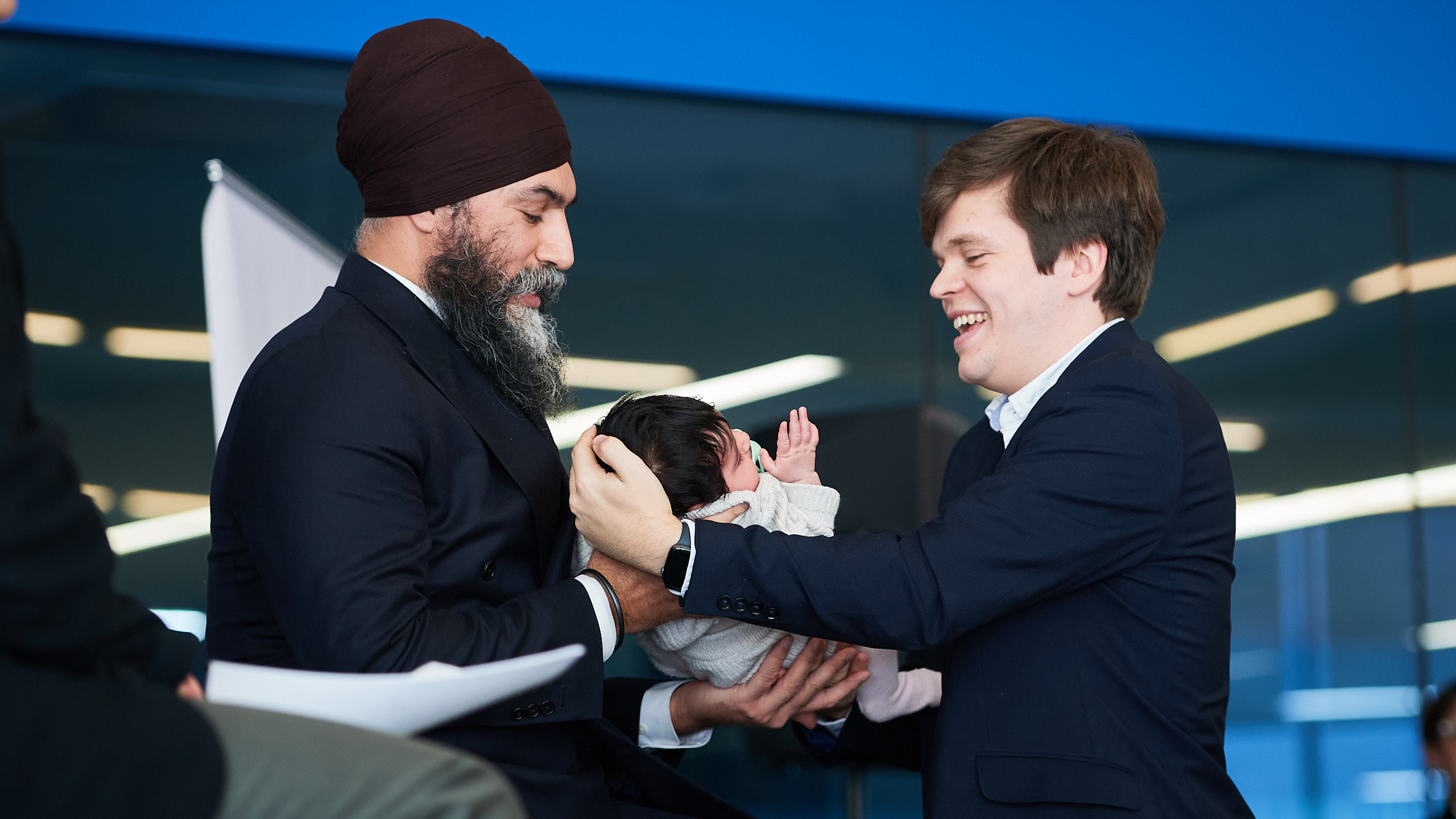





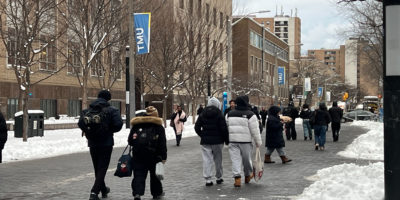



Leave a Reply